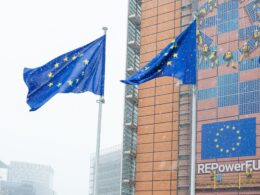In a landmark move to tackle microplastic pollution, the Council of the European Union and the European Parliament have reached a provisional agreement on new regulations aimed at preventing the loss of plastic pellets – the industrial feedstock used to manufacture plastic products – into the environment.
The proposed legislation seeks to strengthen handling practices across the entire supply chain, both on land and at sea, in a bid to reduce the estimated 7,300 truckloads of pellets lost to the environment annually. These microplastics are increasingly being detected in oceans, seas, and even in the human food chain.
Poland’s Minister for Climate and Environment, Paulina Hennig-Kloska, hailed the agreement as a significant step forward. “Microplastics, including plastic pellets, are now found everywhere — in our oceans, seas, and even in the food we eat,” she said. “Today, the EU has taken a landmark step toward reducing pellet pollution by adopting measures to tackle losses and ensure correct handling, including in maritime transport.”
Stricter prevention and risk management measures
The regulation places prevention at its core, mandating both EU and non-EU operators to take action against accidental pellet loss. Each site handling pellets must develop a risk management plan outlining mitigation measures for activities such as packaging, loading, unloading, and staff training. Dedicated clean-up procedures will also be required in the event of any spills.
To ensure accountability and maintain a level playing field, non-EU carriers transporting pellets within the EU will be obliged to appoint an authorised representative based in the bloc.
Balanced compliance for businesses of all sizes
The regulation also introduces tiered obligations based on company size and volume handled. Operators managing more than 1,500 tonnes of plastic pellets annually will need certification from an independent third party. Smaller companies above this threshold will be permitted a one-off certification within five years of the regulation’s enforcement. Firms handling less than 1,500 tonnes and microenterprises will only be required to submit a self-declaration of conformity.
Focus on maritime transport
Recognising the long-lasting presence of plastic pellets in marine environments and the significant volume moved by sea – approximately 38% in the EU in 2022 – the regulation includes specific provisions for maritime transport. These require enhanced packaging standards and adherence to International Maritime Organisation guidelines on cargo handling and transport documentation.
Next steps
The provisional agreement now awaits formal endorsement by both the Council and the Parliament. Following legal and linguistic review, the final text will be adopted and published in the EU’s Official Journal. The regulation will take effect two years after publication, though maritime-specific provisions will apply a year later to allow for sectoral adaptation.
Background
An estimated 52,000 to 184,000 tonnes of plastic pellets were lost to the environment in the EU in 2019 alone. Despite their environmental impact, plastic pellet loss is not currently regulated at EU level. They are considered the third-largest source of unintentional microplastic pollution, following paints and tyres.
The new regulation aims to close this legislative gap and reinforce the EU’s broader environmental and public health agenda.














